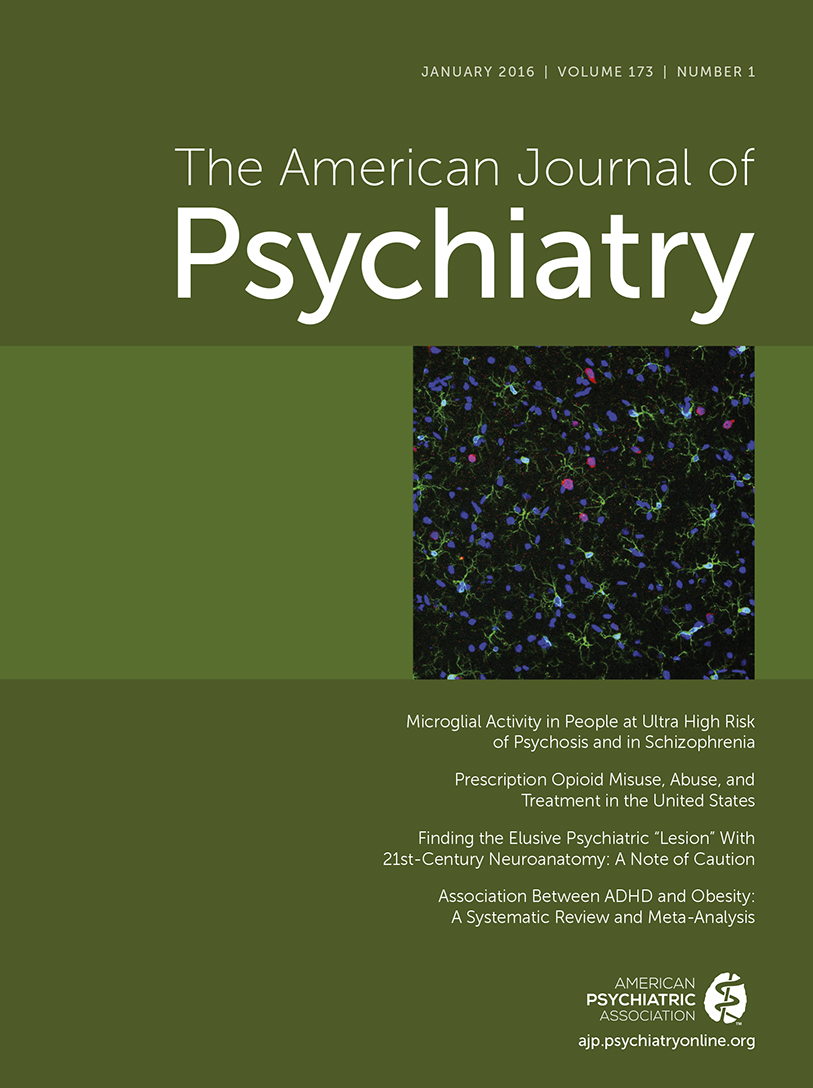Dignity Therapy for Alcohol Use Disorder
Tothe Editor: Dignity therapy is a short-term psychotherapeutic intervention shown to alleviate distress for people with life-limiting illnesses (1). In this therapy, patients generate a document to pass on to loved ones containing details of the patient’s life, life lessons, and declarations of affection. Clinicians help create such documents by recording the patient’s story and then transcribing and editing the patient’s words. We report the case of a 46-year-old man with severe alcohol use disorder who attained abstinence through participation in dignity therapy after failing other outpatient treatment modalities.
Mr. A is a 46-year-old man with a history of generalized anxiety disorder and alcohol use disorder who was drinking approximately 1 L of vodka daily in the setting of anxiety surrounding his divorce. He initially tried Alcoholics Anonymous (AA) and outpatient rehabilitation programs but felt too anxious to participate in groups and ultimately dropped out of care. He eventually presented to outpatient care with one of the authors (J.D.A.).
As part of his treatment, he underwent dignity therapy. Mr. A was interviewed using the Dignity Psychotherapy Question Protocol (1). His answers were recorded over several sessions and transcribed, which took the clinician several hours to complete outside of the sessions. Mr. A then edited the document with the guidance of the clinician. The final product was a 15-page life history, which focused primarily on his parents, children, and work accomplishments. He also reflected on the role that alcohol had played in his life and explained his addiction to his family. He had his last drink of alcohol while editing the document and has been sober now for 10 months. He reported that dignity therapy “changed the story” of his life away from a story of a “failed alcoholic” and that it also resulted in a closer relationship with his family members, which helped support his sobriety.
To our knowledge, this is the first documented report of using dignity therapy for treatment of a substance use disorder. In end-of-life care, dignity therapy has helped patients achieve a heightened sense of dignity, purpose, and meaning, as well as an increased will to live (1). One may expect similar gains in individuals with substance use disorders, especially as addiction research demonstrates that recovering individuals benefit from the construction of narratives (often through AA), which help to repair a damaged sense of self; make sense of past drug use; and develop future, nonaddict identities (2). One might expect dignity therapy also to have positive effects on relatives of individuals with a substance use disorder because substance use frequently affects the family. Future work is needed to adapt dignity therapy for addiction treatment and to identify which patients would benefit most from this intervention.
1 : Dignity therapy: a novel psychotherapeutic intervention for patients near the end of life. J Clin Oncol 2005; 23:5520–5525Crossref, Medline, Google Scholar
2 : Experiences of addiction and recovery: the case for subjective accounts. Addict Res Theory 2002; 10:281–311Crossref, Google Scholar



